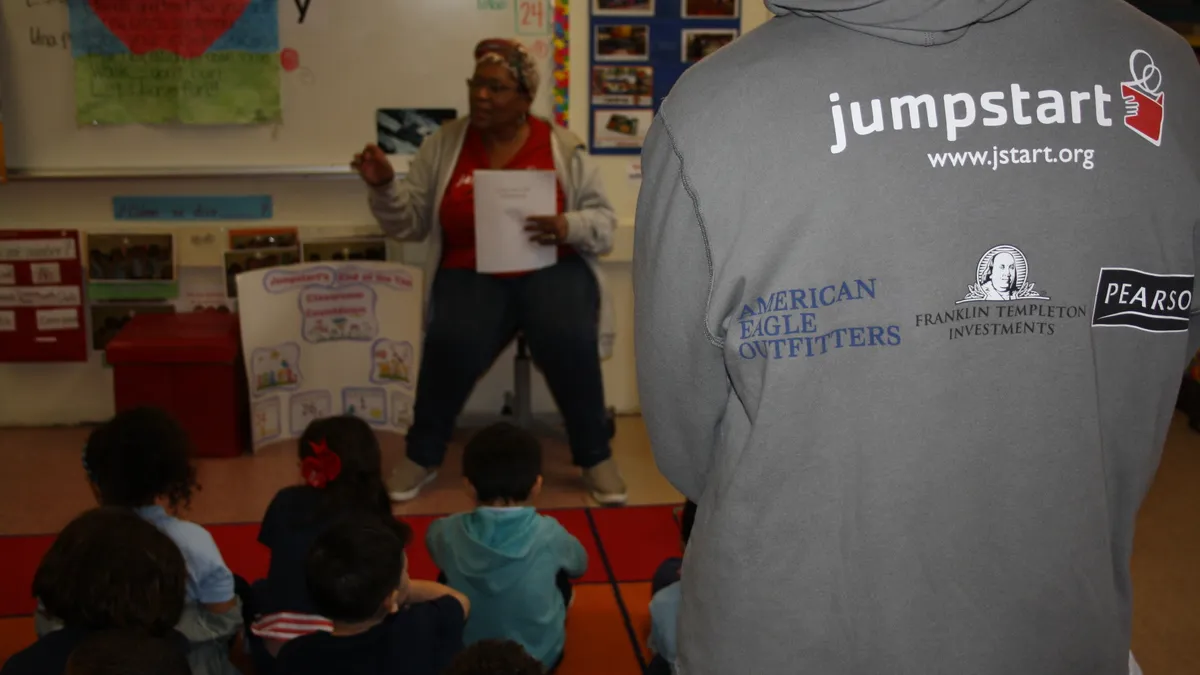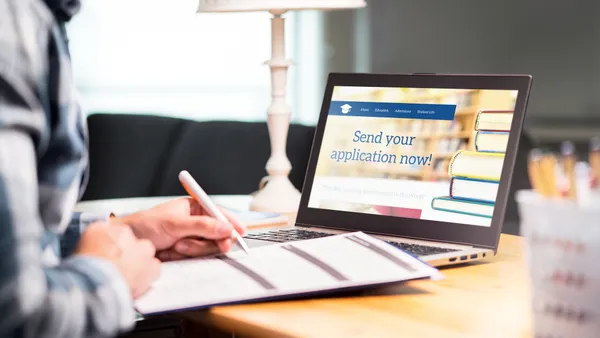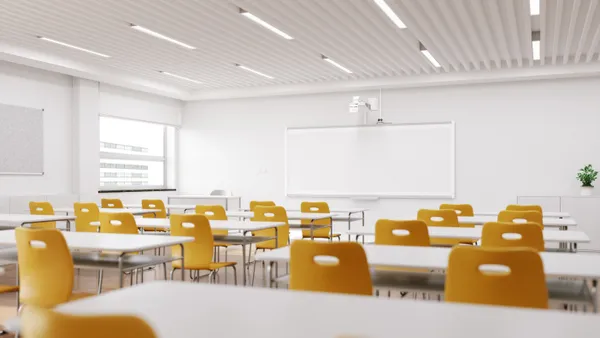When Lianna Pizzo teaches early education courses at the University of Massachusetts Boston, it’s generally clear which students come to the classroom with prior experience. Students who enroll in the four-year program from high school have little time to build up this real-world experience, but an early language and literacy program, Jumpstart, can get them into preschool classrooms right away.
Jumpstart works in low-income urban early childhood centers across 14 states and the District of Columbia, helping prepare 4-year-olds for kindergarten. The vast majority of its nearly 4,000 volunteers are college students. And each year, they get about 300 hours of hands-on experience in the classroom and another 40 hours of additional training specific to language and literacy in early childhood education.
“And they bring that experience into the classroom,” Pizzo said. “When we’re talking about content, lesson planning, language and literacy development, and even bilingualism, they’ve experienced this with kids in the classroom. They have really thoughtful questions.”
Colleges across the country have turned to partnerships like U Mass Boston’s with Jumpstart to offer their students more experiential learning opportunities. In addition to improving the quality of instruction when students bring that experience back to the classroom, colleges have looked to these partnerships as a way to increase student competitiveness in the job market.
And with Jumpstart, the program can be a win across multiple dimensions for students. Some participate through a work-study program, meaning they can get paid for what they might otherwise do for free as interns. Others get stipends through Americorps.
And along with getting paid, students hone the soft skills many employers look for in future hires.
“They have to be professional,” Pizzo said. “They have to show up. They’re learning valuable skillsets in this work.”
Ashley Bushell, a Jumpstart program director, first joined the organization as a freshman at Suffolk University in Boston. She sought out the program as a way to volunteer and ended up making a long-term commitment to early childhood education, graduating with a minor in the field.
Thinking back, she can reflect on the soft skills she practiced through four years with Jumpstart, including teamwork, and see clear connections between her volunteerism and her coursework.
“It really combines the idea of theory and practice,” Bushell said. Learning about scaffolding in a course at Suffolk could be immediately applied in a preschool classroom with students who have very different achievement levels.
And now, for the current generation of Jumpstart volunteers, alumni may see even more direct benefits for future employment. Already, Pizzo said she has known many early education majors who have been hired because of connections they made during Jumpstart. But Bushell said Jumpstart is starting a process that would formally give alumni preferential treatment in hiring by partner schools.
U Mass Boston students do get internship experience as part of their early childhood education degree program, but Pizzo said the extra hours and training with Jumpstart offer another layer to their education and another source of connections for jobs.
For some students, it’s the reason they choose early childhood education as a field in the first place. Fully 32% of Jumpstart volunteers change their majors because of the experience. And 76% of them say in surveys they are likely to pursue a career or advanced degree in an area relevant to their Jumpstart service.
At a time when colleges are striving to differentiate themselves in a crowded higher ed market, offerings hands-on learning experiences like ones afforded by JumpStart can make a difference.












